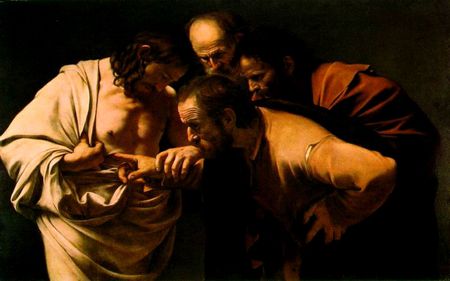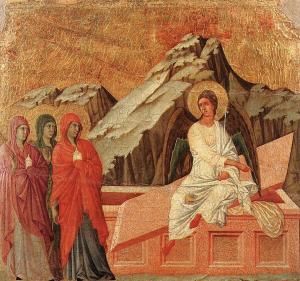As I’ve pursued my call to ministry over the past six years, I’ve often found myself coming back to the story of Jesus walking on water in Matthew 14.
Jesus’s disciples are crossing the sea and find themselves overcome by a storm. As they look across the water, Jesus appears to them walking on the surface of the sea. Peter calls out to him, challenging him to prove he’s really Jesus by bidding Peter to walk on the water with him. Jesus does so and Peter begins to walk out and meet him. As he makes his way towards Jesus, Peter gradually becomes more and more frightened by the wind (and I should think anxious about the fact that he could drown at any moment) until he begins to sink. Jesus pulls Peter up, takes him back to the boat, and they go ashore to continue their ministry.
I feel a kind of bond with Peter in this story. Like Peter, I often feel that God has called me to do the impossible in calling me to follow Jesus’ example amid the often unpredictable conditions of life. By responding to that call, I took the risk of stepping out of my boat onto the surface of troubled sea. And for a while, as I began seminary, I felt like I was doing alright. But as time went on I became more and more aware of my own shortcomings, and the nuances of the ordination process. I began to feel overwhelmed – even doubting my call to ordained ministry at times, wondering if I’d made a mistake.
But the key to the story is that Jesus doesn’t let Peter drown. He’s right there ready to catch Peter and bring him back to the boat and sending him out to preach the good news of God. And likewise God is there for me as I go about this long and often difficult process. While this doesn’t necessarily make things easier, it helps to know that I’m not going it alone, to remember that, since God’s called me to this work, God won’t let me drown in the process.
The truths that this story tells us about God has implications for all of us. Wherever we are, whatever our struggles, God has already been there. God knows our pains, our limitations, our doubts. And God will always be present to stretch forth a hand the waves threaten to overwhelm us.
Where are the points in your life that God has asked you to step onto the sea? And how do you cope when it feels like the waves keep pressing in?








